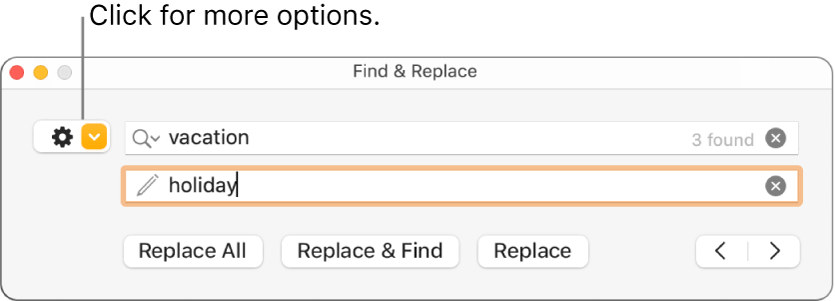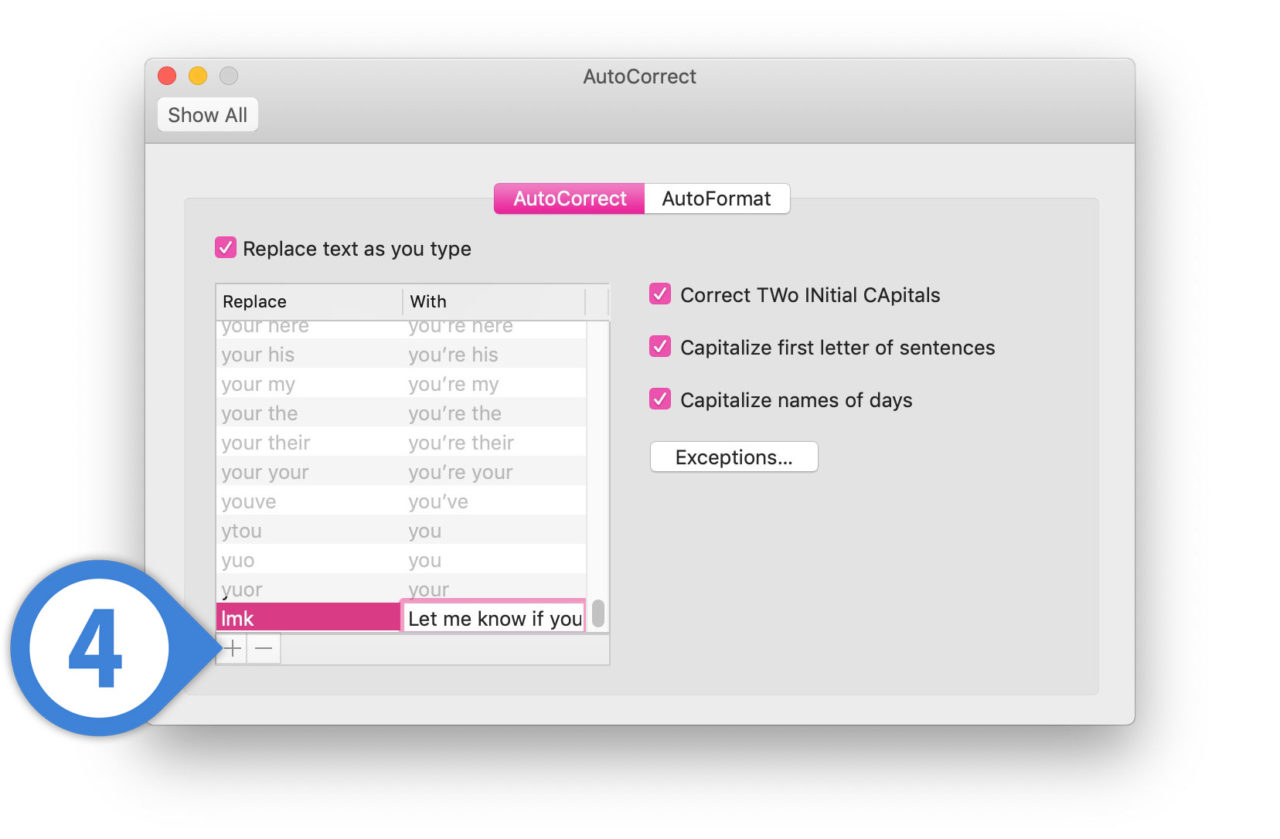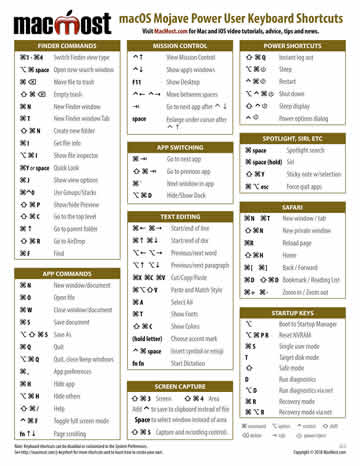Keyboard Shortcuts window will open, in which you can refer to all the list of keys. The following table shows the keyboard combinations/shortcut codes to create an random text, lists, tables, code snippet and so on in your document. Shortcut (Windows/Linux) Shortcut (Mac) Function. Move to the beginning of the line. Move to the end of the line.
SOLUTION: Using the Find and Replace dialog, use the escape character sequence ^p (shift-6 p) to search for or insert paragraph breaks. Click Replace in the Editing group (or click Ctrl+H) and then click the Find tab. I'll show you how to use Find and the Navigation pane in the next section. In the Find What control, enter video. Start by memorizing this keyboard shortcut: Command-` (that’s the Tilde key next to the 1 key at the top of the keyboard). This is a universal Macintosh shortcut for moving through open windows.
Sublime Text featurestwo main types of search:
Both support regular expressions,a powerful tool for searching and replacing text.
# Single File
# Searching
Keyboard shortcuts related to the search panel:
| Description | Shortcut |
|---|---|
| Open search panel | CtrlF |
| Toggle regular expressions | AltR |
| Toggle case sensitivity | AltC |
| Toggle exact match | AltW |
| Find next | ⏎ |
| Find previous | ⇧⏎ |
| Find all | Alt⏎ |
# Incremental Search
Keyboard shortcuts related to the incremental search panel:
| Description | Shortcut |
|---|---|
| Open incremental search panel | CtrlI |
| Toggle regular expressions | AltR |
| Toggle case sensitivity | AltC |
| Toggle exact match | AltW |
| Find next | ⏎ |
| Find previous | ⇧⏎ |
| Find all | Alt⏎ |
The only difference between this paneland the regular search panellies in the behavior of the ⏎ key.In incremental searches,it will select the next match in the fileand dismiss the search panel for you.Choosing between this panel or the regular search panelis a matter of preference.
# Replacing Text
Keyboard shortcuts related to the replace panel:
Find And Replace Excel Mac Shortcut
| Description | Shortcut |
|---|---|
| Open replace panel | CtrlH |
| Replace next | Ctrl⇧H |
| Replace all | CtrlAlt⏎ |
# Tips
# Other Ways of Searching in Files
Goto Anythingprovides the # operatorto search in the filtered file.
# Other Search-Related Key Bindings
These key bindings workwhen the search panel is hidden:
| Description | Shortcut |
|---|---|
| Search forward using most recent pattern | F3 |
| Search backwards using most recent pattern | ⇧F3 |
| Select all matches using most recent pattern | AltF3 |
You can also perform searchesbased on the current selection:
| Description | Shortcut |
|---|---|
| Search using current selection | CtrlE |
| Replace using current selection | Ctrl⇧E |
# Multiline Search
You can type in multiline search patternsinto search panels.To enter newline characters,press Ctrl⏎.
Note that search panels are resizable too.
# Multiple Files
Mac Shortcut Find And Replace
# Searching
Keyboard shortcuts related to Find in Files:
| Description | Shortcut |
|---|---|
| Open Find in Files | Ctrl⇧F |
| Toggle regular expressions | AltR |
| Toggle case sensitivity | AltC |
| Toggle exact matches | AltW |
| Find next | Enter |
# Search Scope
The Where field in Find in Fileslimits the search scope.You can define scopes in several ways:
- Adding individual directories (Unix-style paths, even on Windows)
- Adding/excluding files based on wildcards
- Adding symbolic locations (
<open folders>,<open files>...)
It is also possible to combine these filters using commas; for example:
Press the ... button in the search panelto display a menu containing scope options.
# Results Format
In the search panel, you can customizehow results are displayed.These are the available options:
- Show in separate view
- Show context
# Navigating Results
If the search yields matches,you can move through the sequenceusing the following key bindings:
| Description | Shortcut |
|---|---|
| Next match | F4 |
| Previous match | ⇧F4 |
| Open match | ⏎ |
You can also double-clickon lines with a match.
# Regular Expressions

Regular Expressions find complex patterns in text.To take full advantageof the search and replace facilities in Sublime Text,you should at least learnthe basics of regular expressions.In this guidewe won't explain how to use regular expressions.
The term regular expressionis usually shortened to regexp or regex.
This is how a regex might look:
To use regular expressions in Sublime Text,you first need to activate them inthe various search panels.Otherwise, search terms will be interpreted literally.

Sublime Text uses thePerl Compatible Regular Expressions (PCRE) enginefrom the Boost library.
See Also


- Boost library documentation for regular expressions(opens new window)
- Documentation on regular expressions.
- Boost library documentation for format strings(opens new window)
- Documentation on format strings.Note that Sublime Text additionally interprets
{n}as${n}.
